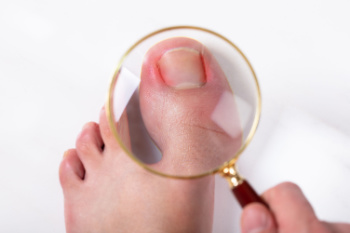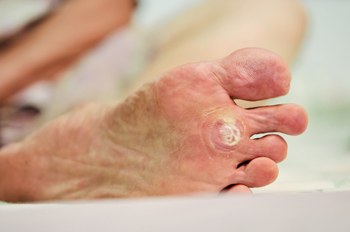Items filtered by date: May 2024
Selecting the Right Footwear for Restaurant Workers

Choosing the right shoes for restaurant workers is essential for their comfort, safety, and overall performance in a fast-paced environment. When selecting footwear, prioritize shoes that offer slip resistance to prevent accidents on wet or greasy surfaces commonly found in kitchens and dining areas. Look for styles with durable, non-slip soles that provide reliable traction. Additionally, opt for shoes with reinforced toes and sturdy construction to protect against dropped objects and other workplace hazards. Comfort is just as important, as restaurant workers spend long hours on their feet. Look for shoes with ample cushioning and arch support to reduce foot fatigue and minimize the risk of injuries like plantar fasciitis. Consider choosing shoes made from breathable materials to keep feet cool and dry during busy shifts. By prioritizing slip resistance, comfort, and breathability, restaurant workers can find the perfect footwear to support them through demanding shifts. If you have developed foot conditions from wearing the wrong shoes while working, it is suggested that you visit a podiatrist. This foot doctor can offer effective treatment solutions and guide you on how to find the right shoes for your workday.
It is important to find shoes that fit you properly in order to avoid a variety of different foot problems. For more information about treatment, contact one of our podiatrists from Centers for Foot & Ankle Care. Our doctors will treat your foot and ankle needs.
Proper Shoe Fitting
Shoes have many different functions. They cushion our body weight, protect our feet, and allow us to safely play sports. You should always make sure that the shoes you wear fit you properly in order to avoid injuries and deformities such as: bunions, corns, calluses, hammertoes, plantar fasciitis, stress fractures, and more. It is important to note that although a certain pair of shoes might be a great fit for someone else, that doesn’t mean they will be a great fit for you. This is why you should always try on shoes before buying them to make sure they are worth the investment. Typically, shoes need to be replaced ever six months to one year of regular use.
Tips for Proper Shoe Fitting
- Select a shoe that is shaped like your foot
- Don’t buy shoes that fit too tight, expecting them to stretch to fit
- Make sure there is enough space (3/8” to ½”) for your longest toe at the end of each shoe when you are standing up
- Walk in the shoes to make sure they fit and feel right
- Don’t select shoes by the size marked inside the shoe, but by how the shoe fits your foot
The shoes you buy should always feel as good as they look. Shoes that fit properly will last longer, feel better, and improve your way of life each day.
If you have any questions, please feel free to contact one of our offices located in Merrillville, Portage, Michigan City/LaPorte, and Schererville, IN . We offer the newest diagnostic and treatment technologies for all your foot care needs.
Safe Footwear Among Restaurant Workers

In the bustling atmosphere of a restaurant, safe footwear emerges as a top priority for workers, with slip and fall accidents posing significant risks that can lead to injuries. Diverse roles within the restaurant necessitate distinct footwear choices to optimize comfort and safety. For instance, chefs benefit from shoes with elevated insoles for prolonged kitchen hours. However, managers may prefer non-slip formal shoes, and waitstaff requires flat, non-slip options with adequate foot protection. Essential safety features like protective toe caps can defend against kitchen hazards, while lightweight materials offer protection and comfort. Waterproof, slip-resistant shoes are indispensable in moisture-prone areas, enhancing stability and confidence. Material selection, including rubber and canvas, underscores durability and ease of maintenance. Safety elements like aluminum or plastic toe caps ensure protection, particularly in canvas footwear. If you have sustained a foot or ankle injury while working in a restaurant, it is suggested that you make an appointment with a podiatrist for an exam and treatment options.
While working on the feet, it is important to take the proper care of them. For more information about working on your feet, contact one of our podiatrists from Centers for Foot & Ankle Care. Our doctors will treat your foot and ankle needs.
Working on Your Feet
Standing on your feet for long periods of time can cause stress and pain in your feet. Your whole body may experience change in terms of posture, back pain, bunions, callouses and or plantar warts. There are ways to avoid these conditions with proper foot care, smart choices and correct posture.
Positive Changes
Negative heeled shoe – Choosing this shoe type places the heel slightly lower than the ball of the foot. These are great for overall foot health. Find shoes that fit you correctly.
Go barefoot – Our feet were not designed to be enclosed for all hours of the day. Try to periodically expose your feet to air.
Eliminate Pain
Foot Exercises – Performing simple exercises, incorporating yoga and doing stretches are beneficial. This will allow increased blood flow to the area and muscles of the foot.
Achilles tendon – Stretching the foot out flat on the floor will relax the calf muscles and tendon. These exercises can be performed almost anywhere. Make sure you add these exercises to your daily regimen.
With a little bit of this information and knowing more about foot health, you will notice changes. Foot stretches and proper footwear will help with pain and prevent further issues.
If you have any questions please feel free to contact one of our offices located in Merrillville, Portage, Michigan City/LaPorte, and Schererville, IN . We offer the newest diagnostic and treatment technologies for all your foot and ankle needs.
Ingrown Toenails and Prevention Strategies

Ingrown toenails occur when the edge of a toenail grows into the surrounding skin, leading to pain, swelling, and sometimes infection. This condition often arises from improper nail trimming, wearing tight-fitting shoes, or sustaining foot injuries. To prevent ingrown toenails, proper foot care is essential. Trim toenails straight across, avoiding rounded edges, and ensure they are not too short. Wear shoes that provide ample toe room and avoid tight or narrow footwear that can exert pressure on the toes. Additionally, maintaining good foot hygiene by keeping feet clean and dry can help reduce the risk of infection. It is beneficial for individuals with diabetes or circulation problems to take extra precautions. If you have developed an ingrown toenail, it is suggested that you consult a podiatrist who can offer you effective treatment methods.
Ingrown toenails may initially present themselves as a minor discomfort, but they may progress into an infection in the skin without proper treatment. For more information about ingrown toenails, contact one of our podiatrists of Centers for Foot & Ankle Care. Our doctors can provide the care you need to keep you pain-free and on your feet.
Ingrown Toenails
Ingrown toenails are caused when the corner or side of a toenail grows into the soft flesh surrounding it. They often result in redness, swelling, pain, and in some cases, infection. This condition typically affects the big toe and may recur if it is not treated properly.
Causes
- Improper toenail trimming
- Genetics
- Improper shoe fitting
- Injury from pedicures or nail picking
- Abnormal gait
- Poor hygiene
You are more likely to develop an ingrown toenail if you are obese, have diabetes, arthritis, or have any fungal infection in your nails. Additionally, people who have foot or toe deformities are at a higher risk of developing an ingrown toenail.
Symptoms
Some symptoms of ingrown toenails are redness, swelling, and pain. In rare cases, there may be a yellowish drainage coming from the nail.
Treatment
Ignoring an ingrown toenail can have serious complications. Infections of the nail border can progress to a deeper soft-tissue infection, which can then turn into a bone infection. You should always speak with your podiatrist if you suspect you have an ingrown toenail, especially if you have diabetes or poor circulation.
If you have any questions, please feel free to contact one of our offices located in Merrillville, Portage, Michigan City/LaPorte, and Schererville, IN . We offer the newest diagnostic and treatment technologies for all your foot care needs.
Wounds That Don't Heal Need to Be Checked
Causes of Plantar Warts

Plantar warts are noncancerous growths caused by the human papillomavirus, or HPV, infecting the outer layer of skin on the soles of the feet. They often appear as small, grainy lesions with black dots embedded within them, causing discomfort or pain, especially when walking or standing. Those individuals with diabetes or compromised immune systems should be particularly watchful of such growths. These warts are contagious and can spread through direct contact with infected surfaces or skin. Treatment options can include salicylic acid to prescription strength treatments such as cryotherapy, laser therapy, or surgical removal. If you have a plantar wart that causes persistent pain, changes in appearance, or interferes with walking, it is suggested that you seek podiatric attention.
Plantar warts can be very uncomfortable. If you need your feet checked, contact one of our podiatrists from Centers for Foot & Ankle Care. Our doctors will assist you with all of your foot and ankle needs.
About Plantar Warts
Plantar warts are the result of HPV, or human papillomavirus, getting into open wounds on the feet. They are mostly found on the heels or balls of the feet.
While plantar warts are generally harmless, those experiencing excessive pain or those suffering from diabetes or a compromised immune system require immediate medical care. Plantar warts are easily diagnosed, usually through scraping off a bit of rough skin or by getting a biopsy.
Symptoms
- Lesions on the bottom of your feet, usually rough and grainy
- Hard or thick callused spots
- Wart seeds, which are small clotted blood vessels that look like little black spots
- Pain, discomfort, or tenderness of your feet when walking or standing
Treatment
- Freezing
- Electric tool removal
- Laser Treatment
- Topical Creams (prescription only)
- Over-the-counter medications
To help prevent developing plantar warts, avoid walking barefoot over abrasive surfaces that can cause cuts or wounds for HPV to get into. Avoiding direct contact with other warts, as well as not picking or rubbing existing warts, can help prevent the further spread of plantar warts. However, if you think you have developed plantar warts, speak to your podiatrist. He or she can diagnose the warts on your feet and recommend the appropriate treatment options.
If you have any questions please feel free to contact one of our offices located in Merrillville, Portage, Michigan City/LaPorte, and Schererville, IN . We offer the newest diagnostic and treatment technologies for all your foot and ankle needs.

